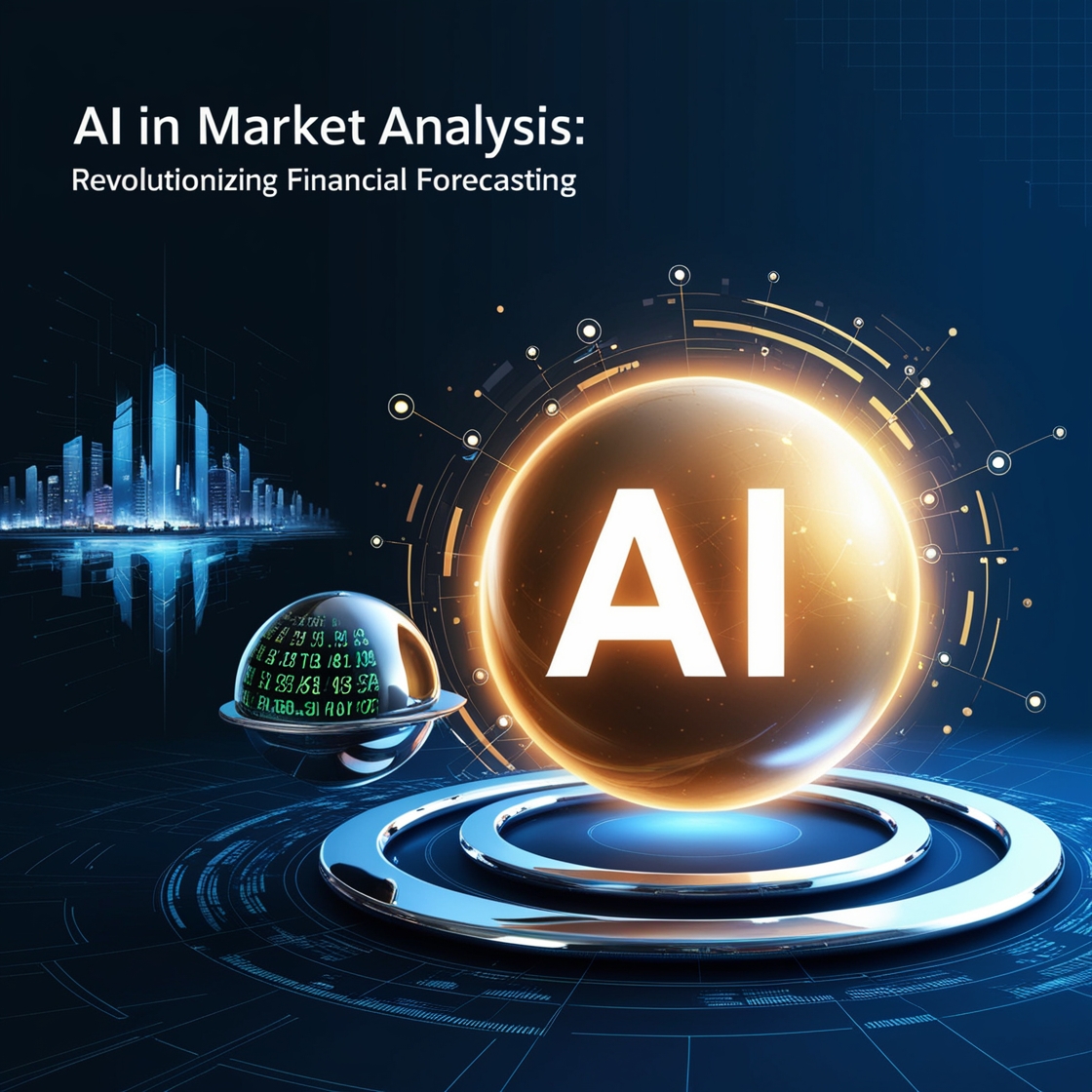Introduction
The world of finance is undergoing a seismic shift, thanks to the integration of artificial intelligence (AI). From analyzing vast amounts of data to making real-time predictions, AI has become an indispensable tool for financial forecasting. But how is AI revolutionizing market analysis, and what does it mean for traders and investors? Let’s explore how AI is shaping the future of finance.
What is AI in Market Analysis?
Definition and Scope
AI in market analysis refers to the use of advanced technologies like machine learning (ML) and natural language processing (NLP) to interpret and predict financial trends. These tools analyze historical data, current events, and even social sentiment to provide actionable insights.
Key Components of AI in Finance
- Machine Learning (ML): Algorithms that improve with data exposure, enabling better predictions.
- Natural Language Processing (NLP): AI’s ability to interpret text from news, reports, and social media.
- Big Data Analytics: Handling massive datasets that traditional methods struggle to process.
How AI is Transforming Financial Forecasting
Data Processing and Analysis
AI can process enormous datasets from diverse sources—such as stock prices, economic reports, and news articles—at lightning speed. This real-time capability is a game-changer for market analysis.
Predictive Analytics
By identifying patterns in historical data, machine learning models can forecast future trends with remarkable accuracy. These insights help traders anticipate market movements before they occur.
Sentiment Analysis in Trading
AI-driven sentiment analysis deciphers the emotional tone of market chatter, providing clues about potential price movements. For instance, a surge in positive sentiment around a stock might indicate an upcoming rally.
Benefits of AI in Market Analysis
Increased Accuracy
AI enhances the precision of financial forecasts by considering more variables than human analysts typically can.
Faster Decision-Making
AI-powered platforms generate real-time insights, enabling traders to act quickly on emerging opportunities.
Cost Efficiency
Automating data analysis reduces reliance on manual labor, saving time and resources for firms and individual investors.
Challenges of Using AI in Financial Forecasting
Data Quality Issues
AI models are only as good as the data they analyze. Poor-quality or biased data can lead to flawed predictions.
Overfitting in Machine Learning Models
Overly complex models may perform well on historical data but fail to adapt to new market conditions.
Ethical and Regulatory Concerns
AI’s decision-making process can sometimes lack transparency, raising questions about accountability in financial decisions.
AI Tools Revolutionizing Market Analysis
Popular Platforms
- Bloomberg Terminal: Provides advanced AI-driven analytics and market insights.
- Kensho: Known for its predictive analytics and visualization tools.
- AlphaSense: Focuses on NLP to analyze corporate and financial documents.
AI-Powered Trading Bots
Algorithmic trading bots, powered by AI, execute trades based on predefined criteria, making trading faster and more efficient.
Case Studies: AI in Action
Predicting Major Market Events
During the COVID-19 pandemic, some AI tools accurately predicted market downturns by analyzing early news reports and social sentiment.
Portfolio Management
AI-driven robo-advisors like Betterment and Wealthfront have revolutionized portfolio management, offering personalized investment strategies with minimal human intervention.
The Future of AI in Financial Forecasting
The Role of Quantum Computing
Quantum computing could further enhance AI’s ability to analyze complex datasets, unlocking new levels of accuracy in market predictions.
Greater Personalization
AI is moving toward providing hyper-personalized insights, catering to the unique needs of individual investors and traders.
Conclusion
AI is undeniably transforming market analysis, offering unparalleled speed, accuracy, and efficiency. While challenges like data quality and regulatory concerns remain, the benefits far outweigh the drawbacks. As AI continues to evolve, it will play an even more significant role in shaping financial markets. For traders and investors, embracing AI tools is no longer optional—it’s essential.
FAQs
- How does AI work in market analysis?
AI uses machine learning and big data to analyze patterns, predict trends, and provide actionable insights. - Is AI better than human analysts?
AI excels at processing large datasets quickly, but human intuition and expertise still play a crucial role. - Can AI predict stock market crashes?
While AI can identify warning signs, no system can guarantee the prediction of crashes due to market unpredictability. - What are the risks of relying on AI in trading?
Risks include overfitting, reliance on flawed data, and lack of transparency in decision-making processes. - How can beginners start using AI for investing?
Beginners can explore AI-powered platforms like robo-advisors or sentiment analysis tools to make data-driven decisions.
